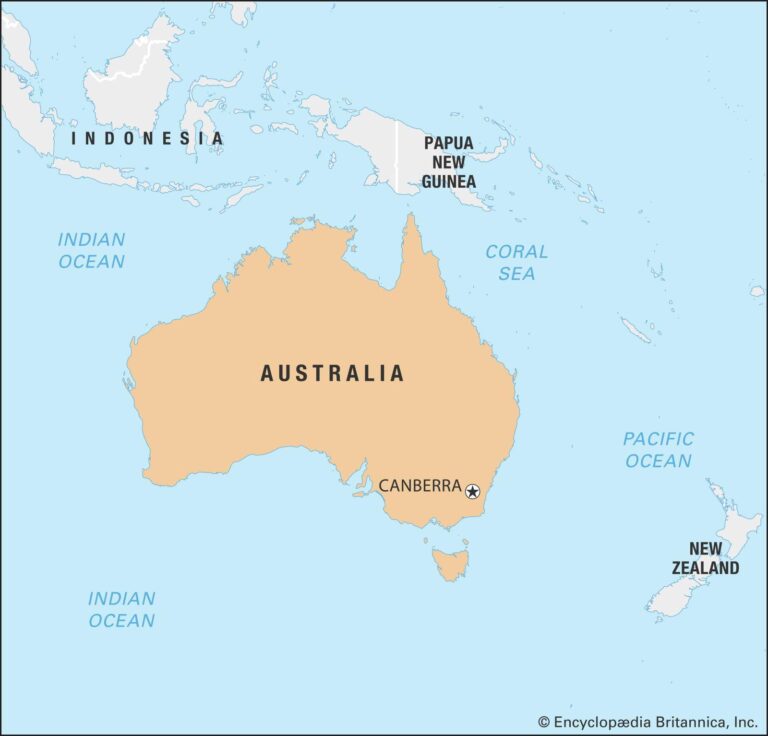Australia’s High Court has delivered a landmark ruling affirming the government’s expansive authority to impose broad visa bans, stirring significant debate over immigration policy and civil liberties. The decision upholds provisions that enable sweeping restrictions on entry visas, marking a pivotal moment in Australia’s approach to border control. Critics argue the ruling undermines fundamental rights and grants the state unchecked power, while supporters contend it is essential for national security and immigration management. This development signals a critical shift in the legal landscape governing migration and raises urgent questions about the balance between security and individual freedoms.
Australia’s High Court Upholds Broad Government Authority Over Visa Restrictions
The High Court of Australia has delivered a decisive ruling, affirming the government’s expansive powers to impose visa restrictions without significant judicial oversight. This verdict effectively validates a series of sweeping measures that grant the executive branch unilateral authority to restrict or deny visas to individuals based on broad criteria related to national security and public order. Critics argue that this legal precedent sets a troubling standard, as it severely limits the avenues for affected individuals to challenge governmental decisions, potentially undermining basic rights and freedoms.
Key aspects of the ruling include:
- Wide-ranging discretion: The government can now enforce visa bans with minimal checks and balances.
- Limited judicial review: Courts are restricted from overturning visa refusals unless clear legal errors are evident.
- Implications for asylum seekers: Potentially harsher barriers for refugees attempting to plead their cases.
- Impact on diplomatic relations: Countries targeted by these policies may respond with reciprocal travel restrictions.
| Authority | Scope of Power | Judicial Oversight |
|---|---|---|
| Executive Branch | Visa refusal and cancellation | Highly limited |
| Judiciary | Review limited to procedural errors | Minimal intervention |
| Immigrants and Refugees | Subject to broad exclusionary measures | Restricted appeal options |
Implications for Immigrants and International Relations Under Sweeping Visa Ban Powers
The recent High Court ruling dramatically expands the government’s authority to impose visa bans without the usual legal safeguards and due process. For immigrants, this means heightened uncertainty and vulnerability, as decisions can now be made abruptly and broadly, often circumventing traditional avenues of appeal and review. The sweeping powers grant immigration authorities the ability to blacklist individuals based on vague or undisclosed criteria, affecting a wide range of visa holders including students, temporary workers, and refugees, exacerbating fears of discrimination and arbitrary enforcement.
On the international stage, the ruling risks straining diplomatic relations, as governments and global organizations may view Australia’s approach as overly harsh and inconsistent with international human rights norms. This shift could complicate Australia’s ability to negotiate bilateral agreements or attract skilled migrants, investors, and tourists. The following table outlines key potential impacts:
| Area | Impact | Potential Response |
|---|---|---|
| Immigrant Communities | Increased anxiety / instability | Legal challenges / community advocacy |
| Diplomatic Ties | Possible tensions with allied nations | Calls for policy review / multilateral talks |
| Economic Sector | Skills shortages / reduced foreign investment | Incentives to attract alternative talent pools |
- Legal transparency: Calls grow louder for clearer guidelines on ban enforcement.
- International scrutiny: Watchdogs and human rights groups warn of potential violations.
- Community impact: Social cohesion faces challenges amid fears within immigrant populations.
Calls for Legal Reforms and Advocacy to Protect Migrant Rights Intensify
In the wake of the High Court’s decision endorsing expansive visa ban powers, advocates and legal experts are intensifying calls for urgent reforms to safeguard the rights of migrants and asylum seekers. Critics argue that the ruling effectively grants the government unchecked authority to exclude individuals without adequate judicial oversight, risking significant human rights violations. Campaigners emphasize that such sweeping powers undermine Australia’s commitment to international refugee conventions and threaten to deepen systemic injustices faced by vulnerable communities.
Legal watchdogs and migrant organizations are highlighting key priorities for reform:
- Strengthening procedural protections: ensuring transparent review processes for visa denials and cancellations.
- Enhancing accountability: introducing parliamentary oversight to limit executive discretion in immigration decisions.
- Promoting access to legal aid: expanding resources for migrants to challenge adverse rulings effectively.
| Aspect | Current State | Proposed Reform |
|---|---|---|
| Judicial Oversight | Limited | Enhanced Review Mechanisms |
| Transparency | Opaque Decision-Making | Mandatory Disclosure of Grounds |
| Legal Support | Insufficient Funding | Expanded Legal Aid |
The Conclusion
As Australia’s High Court upholds expanded government powers to impose sweeping visa bans, the decision marks a significant shift in the landscape of immigration control and civil liberties. Critics warn that these measures risk undermining due process and entrenching exclusionary policies, while supporters argue they are essential for national security and border integrity. The ruling sets a precedent that will shape Australia’s approach to immigration enforcement and continue to fuel debate over the balance between security and human rights in an increasingly globalized world.




